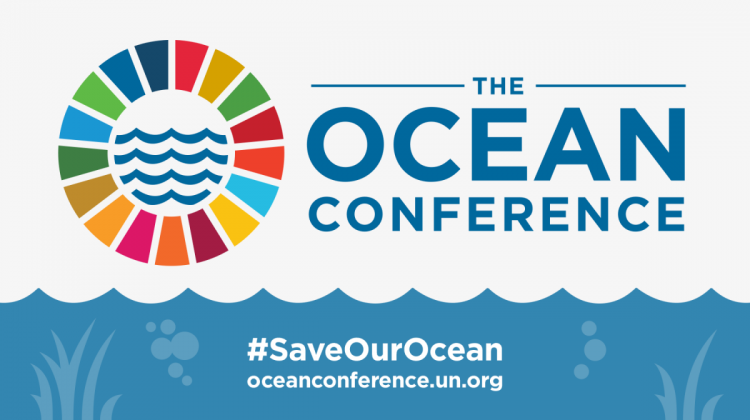By Haruna Gimba
With the livelihoods of about 40 per cent of the world’s population living at or near a coast, the second day of the United Nations Ocean Conference under way in Lisbon, Portugal focused on strengthening sustainable ocean-based economies, managing coastal ecosystems.
The world’s coastal populations contribute significantly to the global economy, an estimated $1.5 trillion per year, with expectations pointing to some $3 trillion by 2030.
Ensuring ocean ecosystem health, supporting livelihoods and driving economic growth requires targeted support for key sectors, including fisheries and aquaculture, tourism, energy, shipping and port activities, and seabed mining, as well as innovative areas such as renewable energy and marine biotechnology.
This is particularly important to small island developing states (SIDS), for whom marine resources are critical assets, providing them with food security, nutrition, employment, foreign exchange, and recreation.
Further, through evidence-based policy interventions, these assets can also make enhanced and sustained contributions to the economic growth, and prosperity of SIDS and least developed countries (LDCs).
Participating in the main interactive dialogue of the second-day of the Conference, former President of Seychelles, Danny Faure, explained to UN News that it is “extremely important that small States have a place at the table, to ensure that they can put forward their aspirations and move in the right direction”.
Acknowledging that climate change continues to affect his own country, and several SIDS, Mr. Faure called on the international community to continue to support countries like Seychelles.
“The blue economy is essential for the livelihoods of our people and nations. I see [investment] coming very slowly and I believe it is very important that, internationally, we continue to maintain the focus, so we can build partnerships between civil society and private sector,” he stated.
Despite of the lack of a universally accepted definition of the term blue economy, the World Bank defines it as “the sustainable use of ocean resources for economic growth, improved livelihoods, and jobs while preserving the health of the ocean ecosystem.
A blue economy prioritizes all three pillars of sustainability: environmental, economic, and social. When talking about sustainable development, it is important to understand the difference between a blue economy and an ocean economy. The term implies that the initiative is environmentally sustainable, inclusive and climate resilient.
In addition to providing goods and services measurable in monetary terms, coral reefs, mangroves, seagrass meadows and wetlands deliver critical ecosystem services such as coastal protection and carbon sequestration.
Small island developing states control 30 per cent of all oceans and seas. But how can SIDS and the private sector build equitable and accountable partnerships for sustainable ocean?
Calling for the implementation of the promises set out in the SIDS Accelerated Modalities of Action, known by the shorthand SAMOA Pathway and the ambitions of Sustainable Development Goal 14 (SDG14), on conservation and sustainable use of the oceans, experts on the second day of the Conference reiterated the importance of harnessing private sector collaboration to make it possible.
Other sectors that are critical to the resilience of developing countries include the coastal tourism sector, which contributes up to 40 per cent or more of the global gross domestic product (GDP) in some SIDS, and the marine fisheries sector, which provides nearly 20 per cent of the average intake of animal protein consumed by 3.2 billion people, and more than 50 per cent of the average intake in some least developed countries.
The Director-General of the World Trade Organization (WTO), Ngozi Okonjo-Iweala added that without multilateralism, no one can solve the problem of the Ocean.
“SIDS have the potential to be large ocean economies if we do so sustainably, we can unlock development prospects,” she added, emphasizing the blue economy path.
Focusing on the interlinkage between the SDG14 and SDG 5 (gender equality and the empowerment of women and girls) a panel of experts advocated for increasing women’s participation and leadership at all levels.
With women critically under-represented in the field of ocean actions, particularly in decision-making roles in ocean science, policy-making, and blue economy, the panel called for more action and a radical change in society.
With the expected participation of over 12,000 ocean advocates, including world leaders, entrepreneurs, youth, influencers, and scientists, the Conference will continue to ignite fresh impetus for advancing SDG14, at the heart of global action to protect life under water.
Concrete measures will be adopted to build ocean resilience and more sustainable communities, underpinned by a new wave of commitments to restore the ocean’s health.




